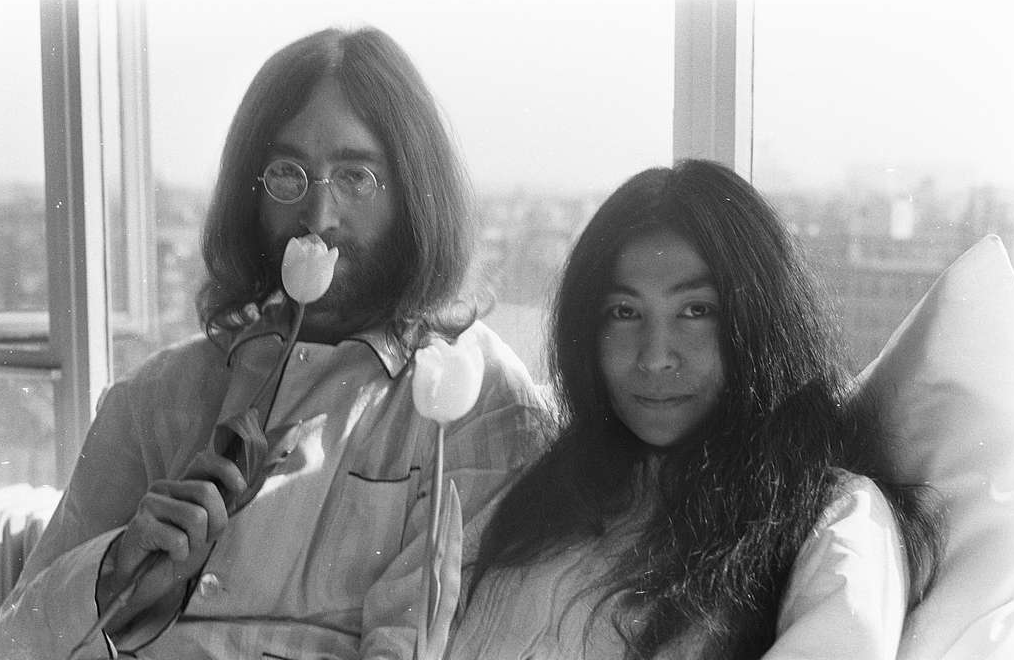A new documentary about the late singer John Lennon was recently released. Entitled “The Lost Weekend: A Love Story,” it chronicles a time Lennon spent in California with assistant May Pang.
One of the more shocking elements of the film is that Lennon’s affair was actually set up by his wife, Yoko Ono. According to Pang, Ono had caught John cheating, and things were so bad in their marriage that she knew he wasn’t going to be faithful to her going forward. So, in order to maintain control over the situation, she enlisted 22-year-old Pang to be the person with whom her husband was to have the inevitable affair.
The film is something of a tragedy, as it represents a time when the singer — hermitized by his wife and plagued by lack of creativity and fractured relationships – seemed to get things back together. Alas, it wasn’t to be, for, toward the end of the 18-month period, just as life was opening up for Lennon once more, Ono’s plan seemed to work, for she got her husband to come back home.
I couldn’t help but be moved by the singer’s transition from a traditional working-class chap from Liverpool to an avant-garde new-ager, and all the manipulation and tragedy which this change seemed to bring about. Therefore, I decided to do a Christian reading of the film.
A few weeks ago, I wrote about the grandeur, strength, and beauty of the nation of England. This is the world John Lennon grew up in, the world of Augustine of Canterbury, John Donne and William Shakespeare, Thomas Cranmer and John Hooker. It was the context in which the musical juggernaut The Beatles was created. But the musician ventured away from this. Not long after The Beatles’ initial successes, the group took a much more experimental turn, particularly in religion, into Eastern mysticism.
The first clue as to the dangers of this might have been the Maharishi Mahesh Yogi, the band’s Indian guru, for, seemingly from the start, their interaction with him was fraught with accusations of shady financial dealing as well as sexual misconduct. By this time Lennon had met Ono, whose religious background included Buddhism, and it was on his 1968 trip to India to visit the Maharishi that he wrote the song “Julia,” part of which was about her. According to the film, Ono relentlessly pursued the singer, now married and with a child, and after several attempts, Lennon succumbed, leaving his wife and family and marrying Ono, a relationship that many insist prompted the break-up of the band.
Even though there were occasional creative successes during this time, Lennon’s life would be characterized less by the commercial success of his previous time with The Beatles and more by the somewhat strange, avant-garde experimental art practiced by his new wife, a life that ultimately led to his dissatisfaction and philandering. This move caused Ono, a manipulator who read the stars and kept her husband away from his ex-wife and son, to employ Pang, the couple’s assistant, to have an affair with her husband, with the hope of getting control of the situation.
The affair arguably worked too well, for, once away from Ono, Lennon’s life seemed to take a turn for the better. He not only wrote more songs and established more musical relationships, but he also reconnected with his ex-wife and son Julian.
But Ono was not done, for, even though she agreed to give Lennon a divorce, every time the subject was pressed, she would refuse, claiming “the stars aren’t right.”
Finally, she got him back long enough to hypnotize him under the pretense of helping him quit smoking, an act that, according to the film, brainwashed the singer, and allowed Ono to keep him forever.
The story of John Lennon reads like a fairy-tale, in which a seemingly stable young musician from Liverpool leaves the logical, absolutist world of the West for the abstract, subjective world of the East, only to become lost in a manipulation game by a new-ager obsessed with reading the stars. In the end, just as it seemed that the hero was going to find his way out of this hall of mirrors, he learned that it had taken him too far and that these strange gods were too powerful.
We in the West would do well to take notice. With the decline of Christianity and the rise of the New Age movement, we should not fear to stand up and rightfully claim that, while there’s nothing wrong with religious tolerance per se, where our religions differ, it is Christianity that offers a stable world view, as well as eternal life. These are facts that neither Hinduism, Buddhism or any of its new-grown branches in the New Age – with all their squishy subjectivity and finding God within oneself – simply cannot counter.
Thanks in part to John Lennon, these ideas have made advances in our culture. But we should beware of the entire story, especially if we’re to resist the lure of the East.
The views and opinions expressed here are those of the author and do not necessarily reflect the policy or position of 1819 News.
Don't miss out! Subscribe to our newsletter and get our top stories every weekday morning.










